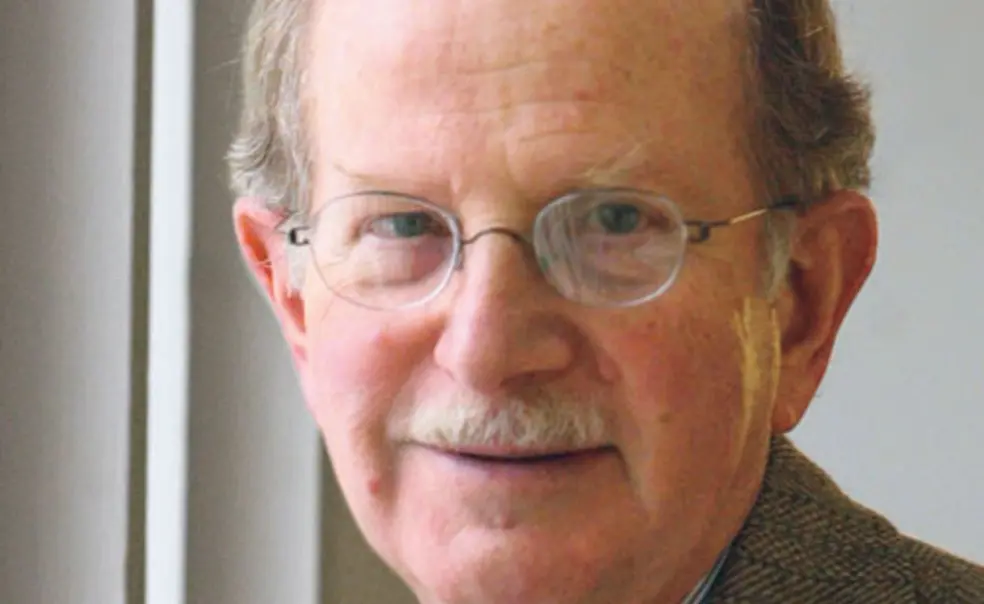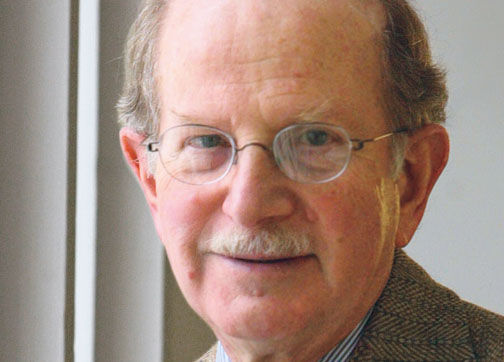Wilson School professor Stanley Katz visits Cuba often as chairman of the Working Group on Cuba, a national group that promotes American-Cuban contacts in the academic and cultural sectors. He also was scheduled to lead the first Princeton Journeys alumni trip to Cuba March 18–25. Katz talked with PAW intern Allie Weiss ’13 in February to mark the 50th anniversary of the U.S. trade embargo on Cuba.
Why has the embargo continued?
Given the dysfunctional character of American politics, a very small minority — namely, Cuban-Americans — are able to extract this particular pound of flesh from the political system. And we’ve tied ourselves in knots with legislation. [The embargo has] proved almost impossible politically to get rid of. All the polls show that the American electorate couldn’t care one way or the other about this issue.
What has it meant to the people of Cuba?
They don’t call it the embargo; they call it el bloqueo — the blockade. There’s deep resentment, and it’s real: We have imposed deep hardship on them. On the other hand, it’s not clear that the Castros could have stayed in power without the blockade. It’s a unifying factor in Cuba. One could argue that we have at the same time inflicted real pain on them and made it possible for the communists to stay in power.
Do recent changes in Cuba (for example, the legalization of the sale of private property) provide reason for optimism for the lifting of the embargo and improved relations between the U.S. and Cuba?
No, we’re talking about two independent things. One is U.S. policy, and the other is Cuban policy. From the U.S. point of view, we have a 50-year-old regime that was, for a variety of reasons, extremely antagonistic to the Cuban revolution, and the imposition of a communist regime in Cuba. The response was, 50 years ago, to establish the embargo. The embargo is, however, a standard tool of American diplomacy, and there are those – I would be one of them – who think it is never a successful strategy. I certainly think it hasn’t been a successful strategy in Cuba.
But nevertheless, it’s important to say that it wasn’t dreamed up for Cuba: This is what we do to nations we consider bad nations, in the hope that we can coerce them into behaving in the ways we approve of. That’s why this came into effect. But the policy is even more driven now by the fact that there’s a large and wealthy Cuban-American community that has a deep stake in Cuban-American relations. Over a period of time, a certain portion of that community has had a very punitive attitude and has been deeply supportive of the most punitive kinds of policies. That has changed a great deal, because the generation of people who came as a result of the revolution is either very old or dead. So it’s really the next generation or the generation after that who are now leading the Cuban-American community, especially the Florida or Miami community, and their attitudes have changed a lot. On the other hand, there are three or four Cuban-American members of Congress who in fact reflect the most punitive-minded. Many people think that’s representative of the Cuban American community—I don’t believe that’s true. But it creates problems, and the problem was made worse in 2000 when arguably the Cuban-American vote put Bush in the White House. So it becomes embroiled in American politics.
Many of us had hope that when Barack Obama came in, there would be a significant change in U.S. policy. That really didn’t happen. The unfortunate thing was that the Latin American Summit was scheduled for February after the inauguration in 2008. [Sen. Bob] Menendez weighed in immediately, and while our impression was the White House was prepared to make considerable change, they didn’t. More recently, last year they did make some changes. The regulations were tightened up under George W. Bush, and now finally the Obama administration has loosened them somewhat. That I think has little to do with changes going on in Cuba; it has much more to do with the original position of this administration and their felt capacity to do what they want with respect to Cuban policy.
Does the present field of presidential candidates give reason for optimism or pessimism for a change in U.S.-Cuba policy?
It’ll depend who it is. I think it’s very hard to predict. What I would predict is that this is not a very important issue to most people, so it’s unlikely to rise up.
Whom it is important to is very interesting: the Cuban-Americans, who view it in very different ways. One of the things that the Obama administration did was loosen the restrictions that Bush – for reasons that I do not understand – imposed upon the travel of families. Obama changed that, so it’s easier for them – they can travel more readily, and send more money than they could before. Obama won Florida, so that’s why we think he wouldn’t have to kowtow to the extremists in that community. The people who really care are in the commercial community. We have a certain level of agricultural exchange with Cuba, but there are other interests – tourist interests, other kinds of trade interests, and American businesspeople – very much in favor of opening it up. So it’s a weird combination of people who may be people on the left, businesspeople, Cuban-American families … it’s not a coherent political grouping, so that makes it very hard to predict. And for no president is this going to be a major issue. It’s a low-key issue that generates a lot of heat.
What would be the major results if the embargo were to be repealed?
If it was tomorrow, and Raul Castro was in charge, I don’t think it would revolutionize relations in the next six or 12 months. We would certainly see an increase in trade; we would see an increase in travel; we’d see an increase in cultural relations between the two countries — that’s what would happen first. And then other things would develop. One of the important things about the loosening up of the property restrictions is that in fact it sets the stage for the movement of property. And if the embargo was over, it would make it conceptually possible for Cuban-Americans, and other Americans, to invest. It depends how it develops.
You’d have to guess that the first thing that would happen would be a big expansion of the tourist industry, and a big increase in U.S. tourists going down there. That would be good business for the Cubans. But also that would be a lot like it was before the revolution. I suppose you’d imagine we would also have gambling and prostitution. Is that progress? I think a lot of people are worried about it. It wouldn’t necessarily be pretty. You can imagine a lot of scenarios, but some of them are quite difficult. We can imagine significant economic development down there, based on the very high levels of human capital that they have. I could imagine the U.S. outsourcing to Cuba rather than to south India. I think there’s a great promise for the software industry there, and the pharmaceutical industry. So those are really interesting questions, but there are so many contingencies.
We know what it looks like when a communist country becomes a free-market capitalist democracy of some sort. We’ve seen that happen, and [the Cubans] have, too, so there are certain things they will do that the Czechs didn’t think to do, for instance. If we end the embargo and the communist government remains in place, then it’s going to be much more gradual. If you can imagine a revolution there – I can’t – that’s a different ballgame. They have a very large army, which appears to be firmly in control. So short-term is hard for me to imagine. But real social unrest … it’s not going to be easy.













No responses yet